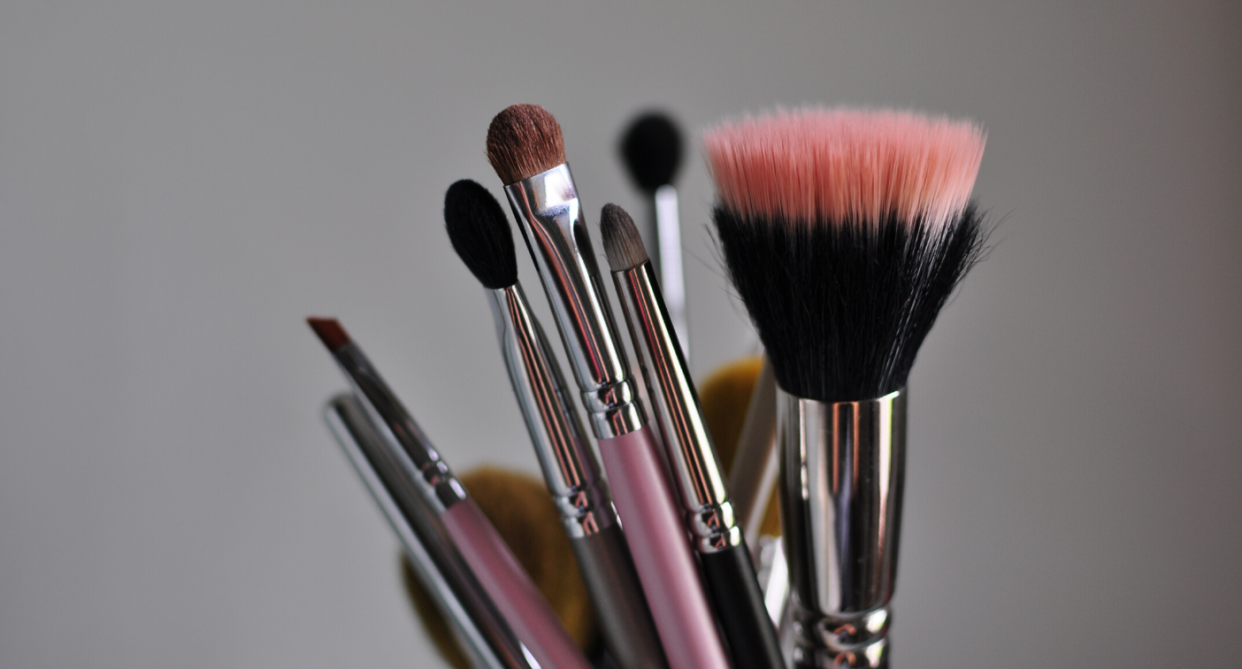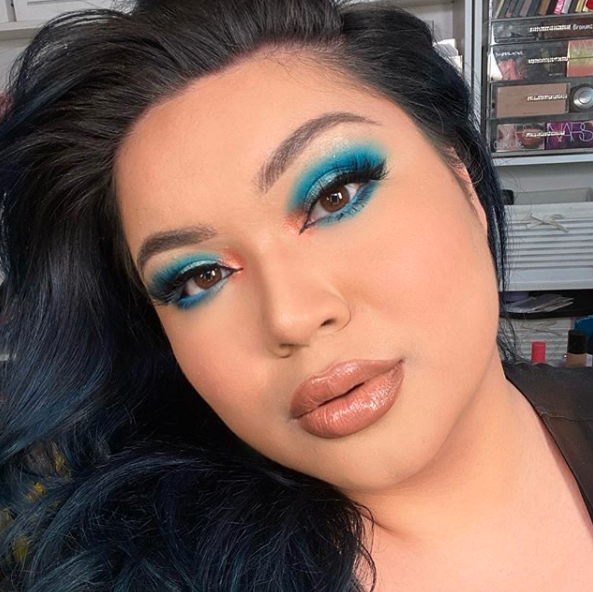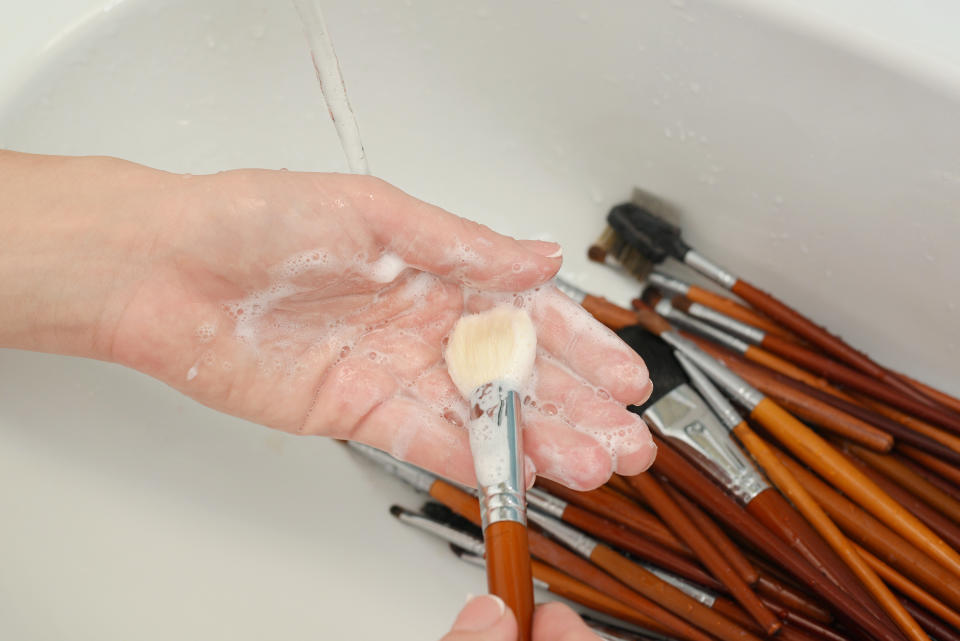Here's how often you should clean makeup brushes

They’re the backbone of our makeup kits — most of us use our makeup brushes every day to paint on flawless bases of foundation, concealer, blush, eyeshadow and bronzer.
Now, with that thought in mind, ask yourself when you last cleaned these essential tools.
If it’s been a month or more, a cleaning is way overdue. And even if they look and feel clean, professional makeup artist Stephanie Valentine, better known as @Glamzilla, says ignoring proper brush hygiene can have a negative impact on the wear and condition of your brushes and your skin.

“Just because a brush looks clean doesn’t mean it is,” she says.
“If you have used the brush....it’s dirty and contains your skins natural oils and sebum. If you have left your brush out on your tabletop for weeks unused, it could also contain dirt, dust and debris.”
She stresses the importance of frequently cleaning your tools — even if you don’t think they need it.
“If you regularly wash your brushes you can avoid unwanted skin breakouts and, most importantly, cross-contamination from your makeup brushes to your actual makeup,” she continues.
There’s so much more to proper brush hygiene than just regularity.
Below, Valentine breaks down everything you need to know about handling and caring for your precious makeup brushes like a pro.
How often should you clean your makeup brushes?
“Our makeup brushes are a breeding ground for bacteria, mould and just a whole bunch of bad stuff,” Valentine says.
“We should wash our brushes regularly and as often as we can — once a week minimum!”
What kind of cleanser work best?
While there are many new, innovative tools and accessories on the market designed to take the hassle out of cleaning your brushes, Valentine says the most efficient method is to just buckle down and use water, gentle soap and your hands.
But if you do want to use a specifically-formulated cleanser, Valentine has a favourite she suggests.
“There are many different options and concoctions for brush cleaners on the market from liquid, hard [solid] soap and foam. Beauty So Clean’s Wipeout Brush Cleanser (professional-strength antibacterial formula designed to wash away residue and bacteria) is the best on the market and the one I recommend to any and everyone.”

What are the steps you need to take?
Here’s Valentine’s routine for cleaning your brushes:
Rinse bristles under water. Try to avoid getting water above the brushes ferrule, to avoid loosening bristles and glue.
With a dime-sized amount of soap, gently saturate and massage the soap into brush bristles.
Using the palm of your hand, lather the soap and in circular motions, gently work the suds into the bristles of your brush.
Rinse with water while avoiding getting water in the ferrule.
Gently squeeze your brush bristles to release excess water.
Form your brush hairs the way you want the bristles to dry. This will help maintain the integrity of your brushes.
Lay your brush flat on a towel without stacking overnight and you will have clean brushes in the morning!
Do the same rules apply to makeup sponges?
“Sponges for personal use are literally impossible to completely sanitize correctly. Which is why pros are now opting not to have beauty sponges in their professional makeup kits,” Valentine explains.
“You’re better off using a brush or a silicone applicator.”
For makeup sponges like the Beauty Blender, we recommend cleaning it thoroughly with soap and water and storing it safely after each wash and use during its four-month shelf life.
For those small triangle sponges, usually packaged in bulk, we say toss them after each use.
make
While frequent cleaning can help extend the life of your brushes, these tools won’t last forever. There are signs you shouldn’t ignore when it comes to determining that they’re no longer capable of getting the job done.
“[You’ll know when] if the bristles are sparse and the ferrule is loose or broken,” advises Valentine.
Other cues are if your brushes give off a funky scent, start feeling rough on your skin, or if they start losing their natural shape.
Got a story tip or just want to get in touch? Email us at lifestyle.tips@verizonmedia.com

 Yahoo Lifestyle
Yahoo Lifestyle 



